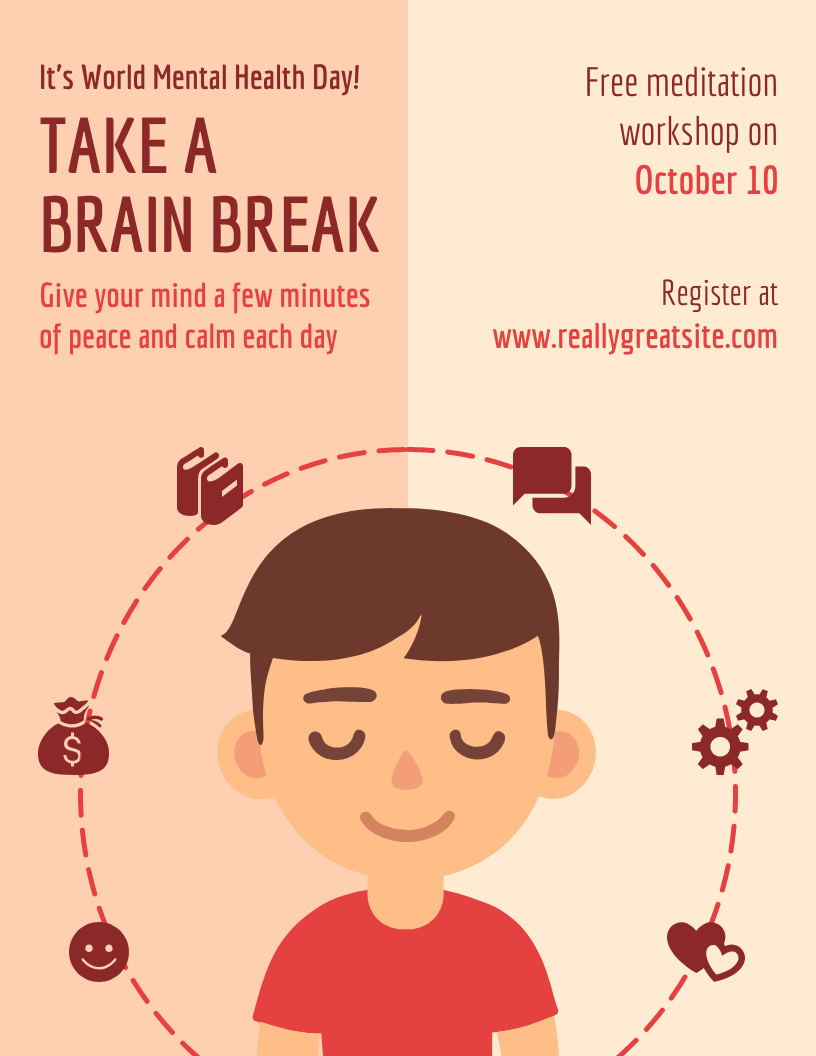
-
|Member | 14 May 2024

Specialist
SpecialistHarvard University graduateSan FranciscoTesting purpose
-
|Member | 18 Apr 2024

Specialist
SpecialistHarvard University graduateSan FranciscoHappiness isn’t a cure-all; it has its limits. Take work. Extremely happy employees can get too comfortable and stop seeking new challenges, limiting their career growth (Boehm & Lyubomirsky, 2008). Take personal adversities. When things get tough, happiness can quickly fade out, making it less reliable than resilience (Fredrickson, 1998). Moreover, chasing happiness can backfire. People striving hard for constant joy can end up feeling down if they don’t hit that high, leaving them more disappointed than if they hadn’t tried so hard (Moss & Tamir, 2012). Plus, happiness that comes from life’s good circumstances can be pretty short-lived. If the influx of money makes you happy, then it’s going away can make you unhappy.Happiness isn’t a cure-all; it has its limits. Take work. Extremely happy employees can get too comfortable and stop seeking new challenges, limiting their career growth (Boehm & Lyubomirsky, 2008). Take personal adversities. When things get tough, happiness can quickly fade out, making it less reliable than resilience (Fredrickson, 1998). Moreover, chasing happiness can backfire. People striving hard for constant joy can end up feeling down if they don’t hit that high, leaving them more disappointed than if they hadn’t tried so hard (Moss & Tamir, 2012). Plus, happiness that comes from life’s good circumstances can be pretty short-lived. If the influx of money makes you happy, then it’s going away can make you unhappy. Happiness isn’t a cure-all; it has its limits. Take work. Extremely happy employees can get too comfortable and stop seeking new challenges, limiting their career growth (Boehm & Lyubomirsky, 2008). Take personal adversities. When things get tough, happiness can quickly fade out, making it less reliable than resilience (Fredrickson, 1998). Moreover, chasing happiness can backfire. People striving hard for constant joy can end up feeling down if they don’t hit that high, leaving them more disappointed than if they hadn’t tried so hard (Moss & Tamir, 2012). Plus, happiness that comes from life’s good circumstances can be pretty short-lived. If the influx of money makes you happy, then it’s going away can make you unhappy. Happiness isn’t a cure-all; it has its limits. Take work. Extremely happy employees can get too comfortable and stop seeking new challenges, limiting their career growth (Boehm & Lyubomirsky, 2008). Take personal adversities. When things get tough, happiness can quickly fade out, making it less reliable than resilience (Fredrickson, 1998). Moreover, chasing happiness can backfire. People striving hard for constant joy can end up feeling down if they don’t hit that high, leaving them more disappointed than if they hadn’t tried so hard (Moss & Tamir, 2012). Plus, happiness that comes from life’s good circumstances can be pretty short-lived. If the influx of money makes you happy, then it’s going away can make you unhappy. Happiness isn’t a cure-all; it has its limits. Take work. Extremely happy employees can get too comfortable and stop seeking new challenges, limiting their career growth (Boehm & Lyubomirsky, 2008). Take personal adversities. When things get tough, happiness can quickly fade out, making it less reliable than resilience (Fredrickson, 1998). Moreover, chasing happiness can backfire. People striving hard for constant joy can end up feeling down if they don’t hit that high, leaving them more disappointed than if they hadn’t tried so hard (Moss & Tamir, 2012). Plus, happiness that comes from life’s good circumstances can be pretty short-lived. If the influx of money makes you happy, then it’s going away can make you unhappy. Happiness isn’t a cure-all; it has its limits. Take work. Extremely happy employees can get too comfortable and stop seeking new challenges, limiting their career growth (Boehm & Lyubomirsky, 2008). Take personal adversities. When things get tough, happiness can quickly fade out, making it less reliable than resilience (Fredrickson, 1998). Moreover, chasing happiness can backfire. People striving hard for constant joy can end up feeling down if they don’t hit that high, leaving them more disappointed than if they hadn’t tried so hard (Moss & Tamir, 2012). Plus, happiness that comes from life’s good circumstances can be pretty short-lived. If the influx of money makes you happy, then it’s going away can make you unhappy. Happiness isn’t a cure-all; it has its limits. Take work. Extremely happy employees can get too comfortable and stop seeking new challenges, limiting their career growth (Boehm & Lyubomirsky, 2008). Take personal adversities. When things get tough, happiness can quickly fade out, making it less reliable than resilience (Fredrickson, 1998). Moreover, chasing happiness can backfire. People striving hard for constant joy can end up feeling down if they don’t hit that high, leaving them more disappointed than if they hadn’t tried so hard (Moss & Tamir, 2012). Plus, happiness that comes from life’s good circumstances can be pretty short-lived. If the influx of money makes you happy, then it’s going away can make you unhappy. Happiness isn’t a cure-all; it has its limits. Take work. Extremely happy employees can get too comfortable and stop seeking new challenges, limiting their career growth (Boehm & Lyubomirsky, 2008). Take personal adversities. When things get tough, happiness can quickly fade out, making it less reliable than resilience (Fredrickson, 1998). Moreover, chasing happiness can backfire. People striving hard for constant joy can end up feeling down if they don’t hit that high, leaving them more disappointed than if they hadn’t tried so hard (Moss & Tamir, 2012). Plus, happiness that comes from life’s good circumstances can be pretty short-lived. If the influx of money makes you happy, then it’s going away can make you unhappy. Happiness isn’t a cure-all; it has its limits. Take work. Extremely happy employees can get too comfortable and stop seeking new challenges, limiting their career growth (Boehm & Lyubomirsky, 2008). Take personal adversities. When things get tough, happiness can quickly fade out, making it less reliable than resilience (Fredrickson, 1998). Moreover, chasing happiness can backfire. People striving hard for constant joy can end up feeling down if they don’t hit that high, leaving them more disappointed than if they hadn’t tried so hard (Moss & Tamir, 2012). Plus, happiness that comes from life’s good circumstances can be pretty short-lived. If the influx of money makes you happy, then it’s going away can make you unhappy. Happiness isn’t a cure-all; it has its limits. Take work. Extremely happy employees can get too comfortable and stop seeking new challenges, limiting their career growth (Boehm & Lyubomirsky, 2008). Take personal adversities. When things get tough, happiness can quickly fade out, making it less reliable than resilience (Fredrickson, 1998). Moreover, chasing happiness can backfire. People striving hard for constant joy can end up feeling down if they don’t hit that high, leaving them more disappointed than if they hadn’t tried so hard (Moss & Tamir, 2012). Plus, happiness that comes from life’s good circumstances can be pretty short-lived. If the influx of money makes you happy, then it’s going away can make you unhappy. Happiness isn’t a cure-all; it has its limits. Take work. Extremely happy employees can get too comfortable and stop seeking new challenges, limiting their career growth (Boehm & Lyubomirsky, 2008). Take personal adversities. When things get tough, happiness can quickly fade out, making it less reliable than resilience (Fredrickson, 1998). Moreover, chasing happiness can backfire. People striving hard for constant joy can end up feeling down if they don’t hit that high, leaving them more disappointed than if they hadn’t tried so hard (Moss & Tamir, 2012). Plus, happiness that comes from life’s good circumstances can be pretty short-lived. If the influx of money makes you happy, then it’s going away can make you unhappy. Happiness isn’t a cure-all; it has its limits. Take work. Extremely happy employees can get too comfortable and stop seeking new challenges, limiting their career growth (Boehm & Lyubomirsky, 2008). Take personal adversities. When things get tough, happiness can quickly fade out, making it less reliable than resilience (Fredrickson, 1998). Moreover, chasing happiness can backfire. People striving hard for constant joy can end up feeling down if they don’t hit that high, leaving them more disappointed than if they hadn’t tried so hard (Moss & Tamir, 2012). Plus, happiness that comes from life’s good circumstances can be pretty short-lived. If the influx of money makes you happy, then it’s going away can make you unhappy.
-
|Specialist | 11 Jan 2024

Specialist
SpecialistHarvard University graduateSan FranciscoThis is test forum
-
|Member | 10 Jan 2024

Specialist
SpecialistHarvard University graduateSan FranciscoWhat are the key point for test
-
|Specialist | 20 Oct 2023

Specialist
SpecialistHarvard University graduateSan Francisco
-
|Specialist | 20 Oct 2023

Specialist
SpecialistHarvard University graduateSan Franciscotesting for save draft and success message
-
|Specialist | 20 Oct 2023

Specialist
SpecialistHarvard University graduateSan Franciscotesting for save draft and success message
-
|Member | 10 Sep 2023

Specialist
SpecialistHarvard University graduateSan Francisco
-
|Member | 25 Jul 2023

Specialist
SpecialistHarvard University graduateSan Francisco
-
|Member | 13 May 2023

Specialist
SpecialistHarvard University graduateSan Francisco





.png)
























Good food By shikha
Specialist
Testtst
Testtst mbmbjbjbjbjbjbjbjbjbjbj